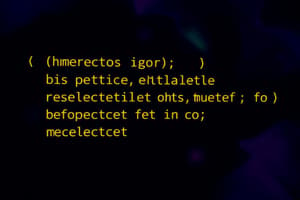Podcast
Questions and Answers
What is the primary purpose of functions in JavaScript?
What is the primary purpose of functions in JavaScript?
- To perform calculations only
- To handle errors exclusively
- To organize and simplify code (correct)
- To declare variables
How can functions be declared in JavaScript?
How can functions be declared in JavaScript?
- Using the `let` keyword
- Using the `function` keyword (correct)
- Using the `const` keyword
- Using the `var` keyword
What is required to execute a function in JavaScript?
What is required to execute a function in JavaScript?
- Defining the function only
- Logging the function to the console
- Specifying the function name and parameters in parentheses (correct)
- Specifying the function name only
What is the benefit of using default parameters in JavaScript?
What is the benefit of using default parameters in JavaScript?
What is the role of the function keyword in a function declaration?
What is the role of the function keyword in a function declaration?
What is an example of a function that takes a parameter in JavaScript?
What is an example of a function that takes a parameter in JavaScript?
What is the purpose of a default value in a function parameter?
What is the purpose of a default value in a function parameter?
What is the purpose of the ... symbol in JavaScript function parameters?
What is the purpose of the ... symbol in JavaScript function parameters?
What is the purpose of a callback function in JavaScript?
What is the purpose of a callback function in JavaScript?
What is the characteristic of a higher-order function in JavaScript?
What is the characteristic of a higher-order function in JavaScript?
What is the result of calling the greet function without providing an argument?
What is the result of calling the greet function without providing an argument?
What is the purpose of the printMessage function in the example?
What is the purpose of the printMessage function in the example?
Flashcards are hidden until you start studying
Study Notes
Functions in JavaScript
JavaScript is a versatile programming language that offers various features and functionalities, including the use of functions. Functions in JavaScript are self-contained blocks of reusable code that perform specific tasks. They are an essential part of object-oriented programming and are used to organize and simplify code. In this article, we'll explore the concept of functions in JavaScript, including their types, declarations, and different types of functions.
Function Declarations
In JavaScript, functions can be declared in several ways. The simplest way is to use the function declaration syntax, which consists of the function keyword followed by the function name, parameters (if any), and the function body. Here's an example:
function sayHello(name) {
console.log('Hello, ' + name);
}
This function, sayHello, takes a parameter name and logs a greeting message to the console.
Function Executions
To execute a function, you need to call it. Calling a function involves specifying the parameters in parentheses and using the function name. For example, to call the sayHello function with the parameter "John", you would write:
sayHello('John');
Default Parameters
JavaScript also supports default parameters. This means that you can specify default values for function parameters. Here's an example:
function greet(name = 'World') {
console.log('Hello, ' + name);
}
In this function, name has a default value of "World". If you call greet without passing any arguments, it will log "Hello, World" to the console.
Rest Parameters
JavaScript also supports rest parameters, which are represented by the ... symbol. This allows you to pass an arbitrary number of arguments to a function. Here's an example:
function sum(...numbers) {
let total = 0;
for (let i = 0; i < numbers.length; i++) {
total += numbers[i];
}
console.log(total);
}
In this function, numbers is a rest parameter that allows you to pass any number of arguments. The function will then sum up all the arguments and log the result to the console.
Callback Functions
Callback functions are functions that are passed as arguments to other functions and are then invoked within those functions. They are commonly used in asynchronous programming and are a key feature of JavaScript's event-driven architecture. Here's an example:
function printMessage(message, callback) {
console.log(message);
callback();
}
function showMessage() {
console.log('Hello, callback!');
}
printMessage('Hello, callback!', showMessage);
In this example, printMessage is a function that takes two parameters: message and callback. It logs the message to the console and then invokes the callback function. In this case, showMessage is the callback function, which logs "Hello, callback!" to the console.
Higher-Order Functions
Higher-order functions are functions that take other functions as parameters or return functions as values. They are a powerful feature of JavaScript and are used in various programming scenarios, including event handling, data processing, and more. Here's an example:
function add(a, b) {
return a + b;
}
const addFive = function(a) {
return add(a, 5);
};
console.log(addFive(3)); // Output: 8
In this example, add is a higher-order function that takes two parameters and returns their sum. addFive is another function that takes a single parameter a and calls add with a and 5. The result is then logged to the console.
Conclusion
Functions are an essential part of JavaScript programming, and understanding their use and various types is crucial for any developer. From function declarations and executions to default parameters and rest parameters, callback functions and higher-order functions, JavaScript offers a wide range of functional programming capabilities. By mastering these concepts, you'll be well on your way to becoming a proficient JavaScript developer.
Studying That Suits You
Use AI to generate personalized quizzes and flashcards to suit your learning preferences.




